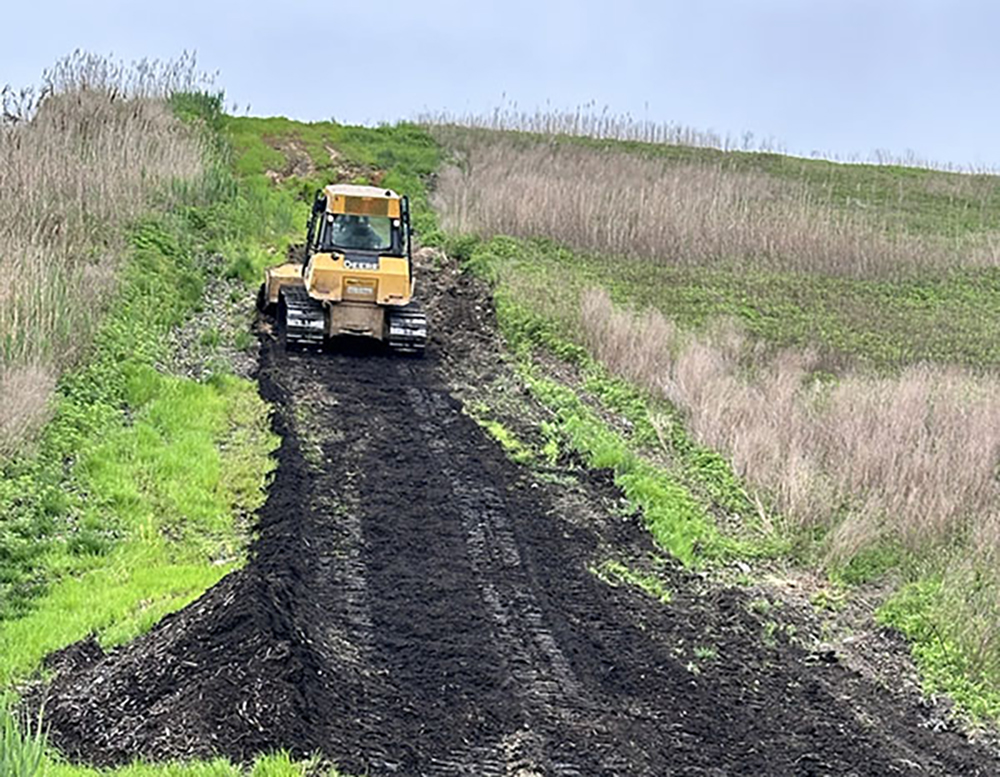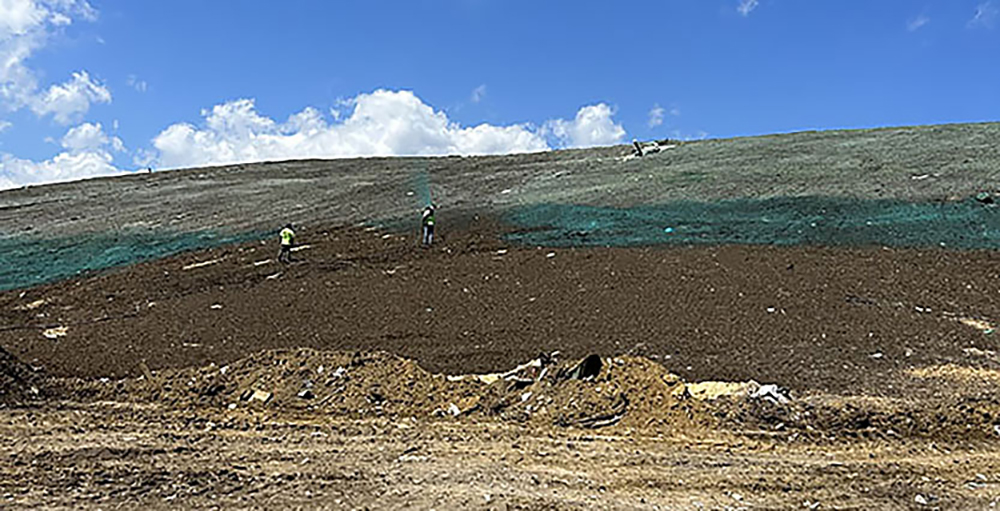By Julia Train
After months of smelling the odor coming from the Atlantic County Utilities Authority (ACUA) landfill, located on Delilah Rd. in Egg Harbor Township, Absecon residents have had enough.
On May 23, Cozen O’Connor filed a civil action in the U.S. District Court for the District of New Jersey against the ACUA on behalf of Bel Aire Lakes Homeowners Association Inc. (BALHOA) and 65 individual residents in the Absecon retirement community.
The lawsuit
The action alleges that the ACUA landfill in Egg Harbor Township is endangering the health of the residents and is violating federal and state environmental laws.
The plaintiffs allege that the ACUA’s landfill emits hazardous levels of hydrogen sulfide (H2S) well above the mandatory health-based regulatory standard of 30 parts per billion and that the facility’s nighttime operations are in violation of state laws.
BALHOA, which calls itself an “Overburdened Environmental Justice Group,” also asserts that the ACUA engaged in fraud by intentionally misrepresenting H2S exposures and concealing emissions data and risk analyses.
The action claims that residents are being exposed to dangerously high levels of H2S, a New Jersey Hazardous Air Pollutant, with an extreme odor of rotten eggs and feces, leading residents to experience breathing difficulties, persistent coughs, nausea and vomiting, migraine headaches, and severe sleep disruption.
“One of the major problems with this landfill, aside from the fact that the air pollution impacts are way above applicable health standards and are causing people to get sick, is the fact that those emissions occur at nighttime,” said Peter J. Fontaine, an environmental lawyer and the lead attorney for the plaintiffs. “The fact that they operate at night is one of the worst aspects of this landfill because right when people are sitting down for dinner, trying to go to sleep or are asleep, they have the horrible experience of breathing in landfill gas.”

Hydroseeding and grading operation
Monitoring the landfill’s emissions and the laws
BALHOA retained landfill expert Weston Solutions, Inc. to monitor the landfill and collect air quality data in the 55+ community over a three-month period, from November to January. Weston found that the landfill’s nighttime operations violate state law prohibiting operations within 1,000 feet of residential communities.
Weston also found that the number and severity of H2S odor complaints have worsened since the ACUA built a 60-foot-tall landfill-retaining wall, which raised the working face of the landfill by 40 feet, enhancing off-site migration of emissions generated by nightly landfilling of waste and since the ACUA began digging into old waste to reduce interior landfill elevations.
According to Fontaine, there was a law passed in 1981 that made it illegal for a landfill to operate at night if it is located within 1,000 feet of a residential zone because the odor increases when they bury trash, and nighttime is when people are most likely home.
Bel Aire Lakes is 250 feet away from the landfill and the 650-unit Ocean Club community that is under construction is 600 feet away.
However, the ACUA needs to do so then because it cannot during the day due to another law stating that a landfill cannot be within 10,000 feet from Atlantic City Airport (ACY) and needing to keep birds away during the day.
The ACUA was approved to only work with construction and demolition waste and incrementally got approval to start to dispose of putrescible waste at night in December 2000, according to Fontaine.
Gatherings at Bel Aire Lakes, built in 2006 and completed with 125 homes in 2008, is 250 feet away from the landfill.
Threats of a lawsuit first surfaced in January during an Absecon Town Hall meeting where residents expressed their anger over the stench and ACUA President Matt DeNafo attended to explain how the site works, discuss what they’re doing to resolve the problem and answer questions citizens had.
“The ACUA’s history has always been as transparent as possible and open to the public,” said DeNafo, who has held his position for about a year, but has been with the ACUA for over 16 years, in an interview with Shore Local in January.

The solid waste landfill is the tallest point in the county
The ACUA’s gas collection system
The ACUA uses gas control collection systems – an infrastructure made of vacuum systems, blowers, flares, miles of pipeline and vertical wells – to convert it into renewable natural gas.
The vertical wells have a diameter of 100 feet and feature a 6-inch perforated pipe drilled into the trash, which can be anywhere from 65 to 110 feet deep.
A vacuum is then put on top and pulls the gas to keep it from escaping so that it can either be flared off or used for renewable natural gas or electricity.
More than 115 of these wells, which are imperative in collecting gas, will be in the landfill by the end of the month, DeNafo said.
In December, the ACUA planned to install 15 new gas wells. In February, 19 were installed and connected.
ACUA’s response
The suit seeks closure and permanently capping of the landfill, as well as recovery of damages associated with personal injuries and property damages, imposition of civil penalties for thousands of violations of federal and state environmental laws, and attorney fees and costs to prosecute the action.
The team at Cozen O’Connor representing Bel Aire Lakes Homeowners Association Inc. and individual homeowners includes Fontaine, Lawrence F. Walker and Matthew Coughlin.
The ACUA, which will be represented by Chris Gibson from Archer & Greiner, P.C., released a statement, saying it strongly disagrees with what it calls misleading statements and characterizations of the events set forth in the complaint and that its operations are fully transparent.
It said Cozen O’Conner has been provided with full access to all data and information requested via multiple requests made pursuant to the Open Public Records Act since January of 2023.
According to the statement, “the ACUA has operated a comprehensive, effective, and responsible solid waste management system in service of the Atlantic County community for more than 30 years. This includes the landfill in Egg Harbor Township, which is highly regulated by the federal Environmental Protection Agency (EPA), the New Jersey Department of Environmental Protection (NJDEP), and the Atlantic County Department of Health. Consistent with this extensive regulatory framework, the landfill is routinely inspected by the NJDEP.”
The ACUA said it intends to vigorously defend against the accusations in court by using facts and evidence, remaining committed to providing the highest quality waste management services to our community.
The ACUA updates the landfill’s odor control on its website. Find it under the “Projects” tab with the title, “Landfill Odor Control.”
Julia is a student at Rider University, majoring in multiplatform journalism with a minor in social media strategies. At school, she writes and is news editor for The Rider News and is the News Director for the radio station, producing news updates. She’ll be graduating in the spring. Connect with her on Instagram @juliatrain










